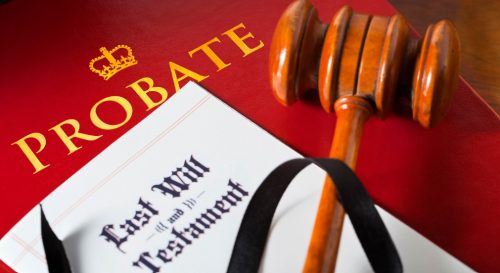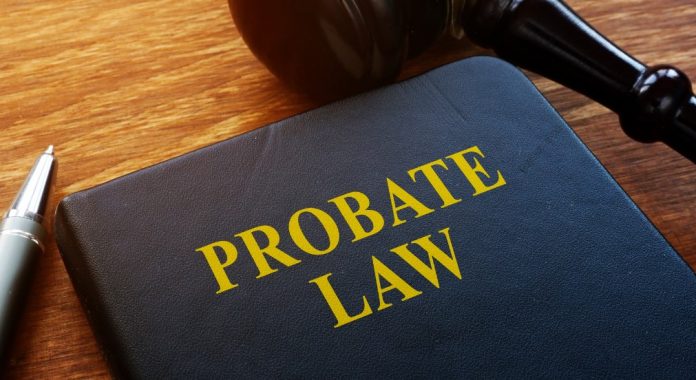Navigating Probate Intrigues: Exploring Controversies and the Essential Role of Solicitors in Estate Administration
As the curtains draw on the life of a loved one, the probate process often becomes the stage for a myriad of complexities and tensions. Amidst the emotional turmoil, solicitors stand as pivotal figures, guiding families through the labyrinth of legal intricacies surrounding the grant of probate. From validating wills to mediating disputes, these legal experts will facilitate a smooth administration of estates amidst potential conflicts and controversies. The article explores the challenges inherent in the probate process and the pivotal role of solicitors in navigating its intricacies
1. Disputes Over theprobate for the
Disputes over the will’s validity are common sources of intrigue during the probate process. The disputes may arise due to allegations of fraud, undue influence, or lack of capacity during the creation of the will. Such challenges can lead to lengthy legal battles and emotional strain among beneficiaries. An experienced will dispute solicitor is crucial in these situations, as they can provide legal counsel, gather evidence, and navigate the complex legal considerations involved in proving or defending the will’s validity.

However, online will offer convenience and accessibility, streamlining the estate planning process for many individuals. An experienced solicitor can provide invaluable guidance on how to get a copy of a will online uk from the Probate Registry. Solicitors possess the expertise to navigate this process efficiently, ensuring compliance with legal procedures and safeguarding the interests of their clients.
The transparent approach minimizes the risk of contentious legal battles and upholds the integrity of the deceased’s wishes. Also, your attorney can offer mediation services in the event of disputes, facilitating open communication and working towards amicable resolutions.
2. Complex Asset Distribution
Asset distribution is a critical aspect of the probate process, and complex asset distribution can significantly delay and complicate proceedings, leading to frustration and increased costs for all parties involved. Challenges such as locating and valuing assets, addressing creditor claims, ownership, and navigating tax implications can prolong the distribution process, potentially causing tension among beneficiaries and other stakeholders.
An experienced lawyer is indispensable in mitigating such complexities, offering expertise in asset management and valuation, debt resolution, and tax planning to ensure a smooth and equitable distribution of assets while minimizing the risk of disputes and delays. That helps preserve the integrity of the deceased’s estate plan by providing a smooth and equitable distribution of assets, whether dealing with complex investment portfolios, intellectual property, real estate holdings, trusts, or international assets.
3. Executor Misconduct
Upon the passing of an individual, the probate process unfolds, often overseen by an appointed executor whose responsibility is to administer the estate according to the terms of the will. However, executor misconduct can disrupt this process, jeopardizing the rightful distribution of assets. Such misconduct may encompass mismanagement of estate assets, self-serving actions, failure to fulfil obligations, or even fraudulent activities. These transgressions delay probate proceedings and inflict financial harm on beneficiaries.

In these delicate situations, the intervention of an experienced solicitor becomes paramount. They provide vigilant oversight, ensure adherence to legal mandates, and hold errant executors accountable, thereby safeguarding the estate’s integrity and the interests of its beneficiaries. That way, you can steer the probate process back to its rightful course, ensuring respect for the deceased’s wishes and fair distribution of assets.
4. Delays and Lengthy Legal Proceedings
Undertaking the probate process requires resilience and due diligence throughout its various stages. It’s essential to recognize that this process takes time, even for seemingly straightforward tasks. For instance, distributing a simple asset that doesn’t require extensive handling, such as selling or transferring, typically takes about three months. However, most assets, which often involve more complex considerations, may necessitate anywhere from six months to a year for proper administration.
Hiring an experienced lawyer becomes crucial in managing these timelines effectively. They help you remain focused and in control amidst the complexities, ensuring diligent execution of tasks such as asset valuation, legal assessments, and resolving potential disputes over distribution. With their expertise, you can navigate the probate process efficiently, minimizing delays, reducing stress, and maintaining trust in the proceedings.
However, it’s crucial to note that most of these actionable plans will only be allowable after attaining the grant of probate, which serves as a legal authorization to administer the deceased’s estate. Until you obtain this grant, significant limitations exist regarding the management and distribution of assets.
The waiting period can add to the overall duration of the probate process and contribute to potential delays in executing planned actions. Therefore, obtaining the grant of probate becomes a priority, underscoring the importance of engaging an experienced lawyer to navigate this essential step effectively.
In conclusion, the probate process demands meticulous due diligence to navigate its complexities and challenges successfully. However, engaging an experienced solicitor propels this journey forward, ensuring a smoother transition from granting probate to receiving your rightful inheritance on time.
Don’t allow disputes or executor misconduct to pull you back; your lawyer will stand as a steadfast ally, providing guidance, resolving conflicts, and safeguarding your interests at every step. With their expertise in interstate succession and support, you can confidently undertake the probate process, ensuring a fair and timely distribution of assets per the deceased’s wishes.



































